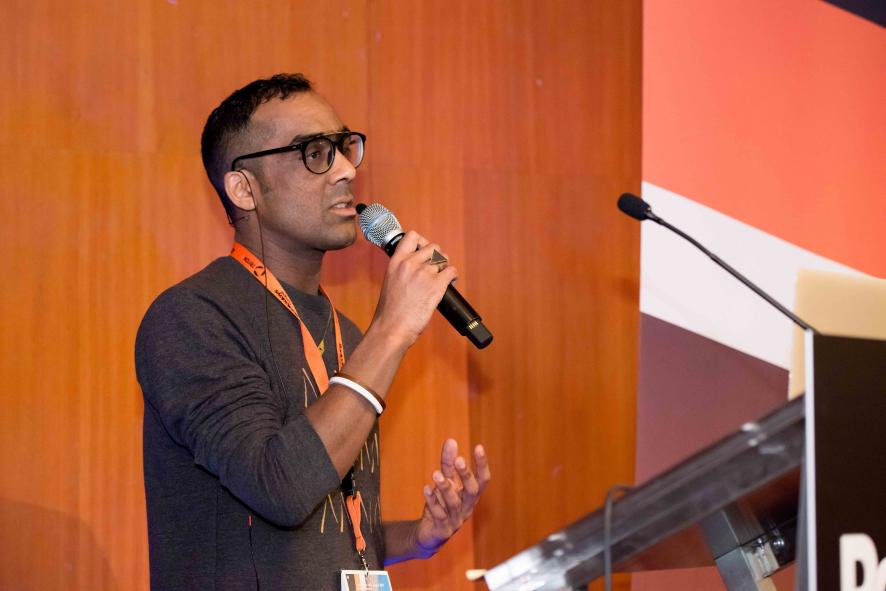Listening figures for music streaming services are rising year on year, and younger audiences are most enthusiastic than ever. Services like Spotify and Mixcloud are often seen as the ‘enemy’ of radio, and in this session two leaders in the streaming industry talked about its future and how radio and streaming can work together.
Reflecting on the past is often the most important part of evaluating the future, and Nikhil Shah, co-founder of Mixcloud, UK, ran through the history of music streaming - starting with New York’s Martin Block, the first real DJ star, who created a connection with an audience and a path to play records on the radio. It seems that history is littered with a tension between those who make the music, and those who play it - we've seen so many examples of how music curators are often in competition with record companies.
‘Piracy is dead. We need to focus on making access easy’. Shah shows how many kids at the moment aren’t concerned by owning digital content, they just want it available easily. We see here how streaming sites have enjoyed such a rapid rise. Nikhil thinks that audiences are ‘drowning in sound’, and by having software sift through what’s available, streaming sites can offer an audience exactly what they want.
Spotify’s David Cooper emphasised that music is a truer reflection of personality over the ‘highlight-reel’ nature of social media. On Instagram and Facebook, you are able to choose the content people can see, whereas on Spotify, friends can see what you’re listening to immediately. Cooper argues that you don’t listen to music for image, it’s all about emotion - this is important for a modern audience.
Also, Cooper showed that 62% of people now value access over ownership, this highlights how the future of content is not in possession, but rather availability. By making music instantly accessible to an audience, streaming sites can ensure it’s success continues to rise.
